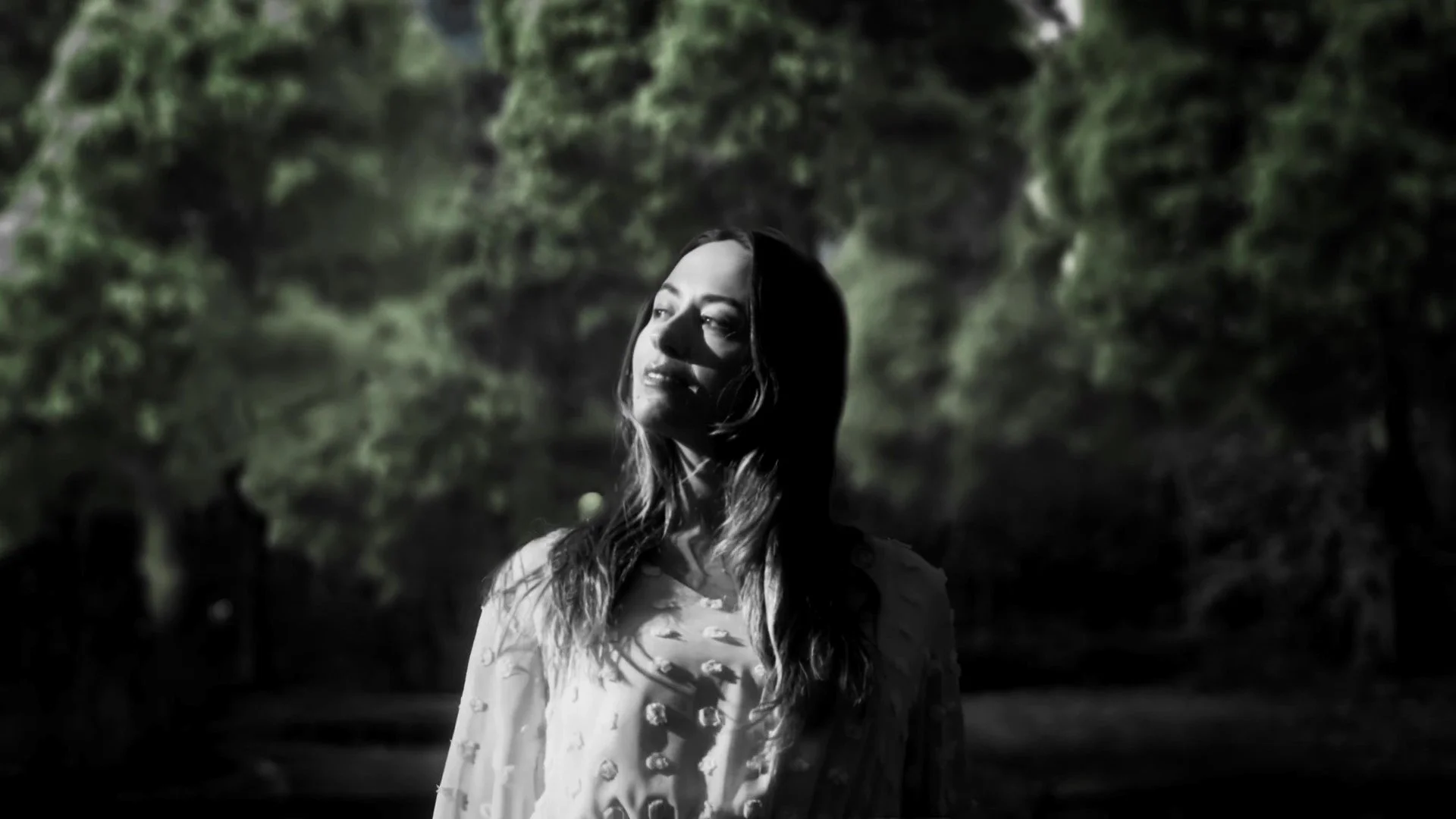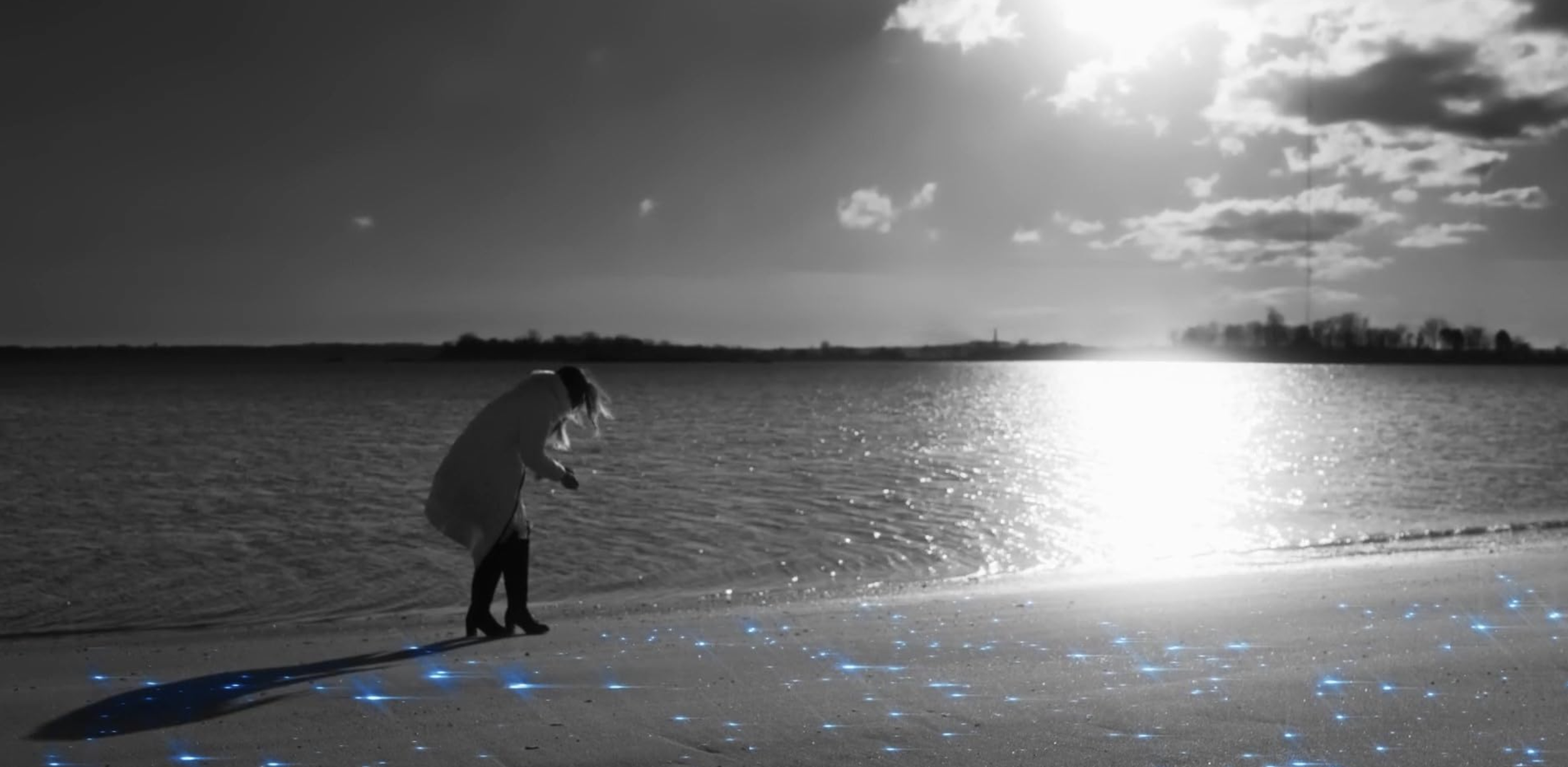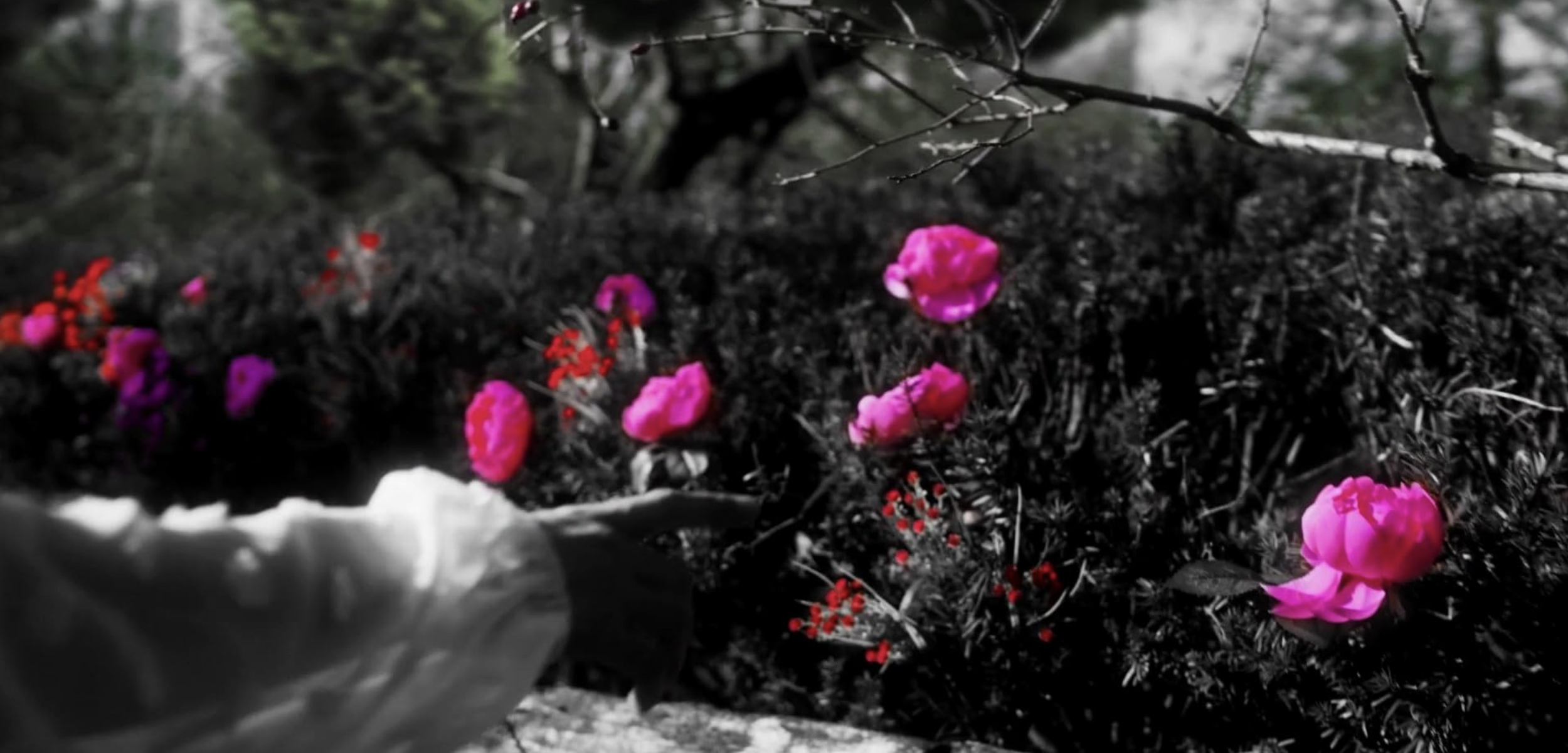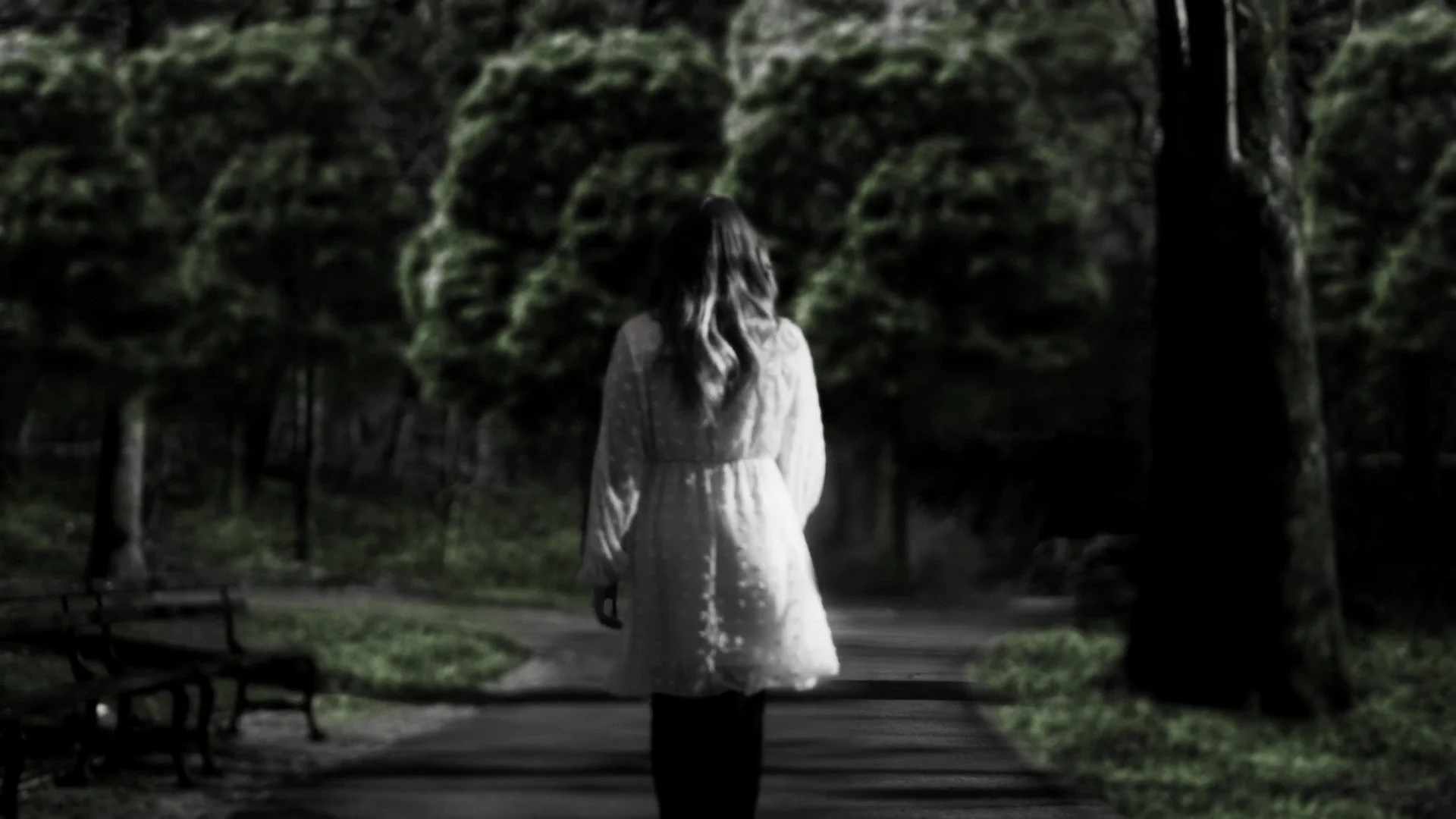Nyctophobia is less a conventional horror film than a slow, surreal dive into the subconscious—a cinematic anxiety spiral wrapped in dream logic and drenched in atmosphere. Written and directed by Seayoon Jeong, the film follows Liz (Olivia Clari Nice), a young woman struggling with the titular fear of the dark. As insomnia eats away at her sanity, Liz slips into a dream world where childhood memories and nightmares blur, and nothing—especially not time or space—feels safe or linear.
What distinguishes Nyctophobia is its commitment to mood over plot. There's a confidence in how it lets its images and silences speak. Olivia Clari Nice gives a mostly wordless performance, grounded in physicality and expression. Her portrayal of Liz is both fragile and haunted, anchoring the film's more abstract elements in something deeply human.
The visual design is where Nyctophobia excels. From mannequin-filled classrooms to clown-faced authority figures, the film embraces a nightmarish surrealism that recalls Lynch or early Aronofsky, albeit with more heart and less edge. A carousel tunnel becomes a warping dream-puzzle, old televisions glitch with unsettling nostalgia, and color is used sparingly but pointedly—especially the saturated reds against grayscale backdrops. These touches give the film a lo-fi, arthouse texture that leans into the theatricality of dreams.
That said, not everything works equally well. The clown motif, while tied to childhood trauma, feels tired in the horror landscape—even if this isn’t strictly a horror film. Some sequences, like the disco room or the exaggerated vintage costuming, can feel more style than substance. The symbolic layering—though rich in suggestion—never quite coalesces into a thematically deep interrogation of fear, memory, or trauma. You get a mood, a feeling, a sense—but not necessarily a revelation.
Still, Jeong’s refusal to spoon-feed meaning is admirable. Nyctophobia trusts its viewers to sit with ambiguity, and while the pacing is slow and intentionally disorienting, the film remains visually engaging throughout. It's the kind of work that prioritizes sensation over narrative clarity, and for those receptive to its dreamlike rhythm, it offers something rare in indie psychological horror: an aesthetic and emotional experience over easy resolution.
In short, Nyctophobia is flawed, but fascinating. It won’t be for everyone, but if you're drawn to introspective, visually expressive films that explore mental states through experimental storytelling, this one might just get under your skin. It's not just about fear of the dark—it’s about understanding what that darkness contains.
Jessie Hobson





